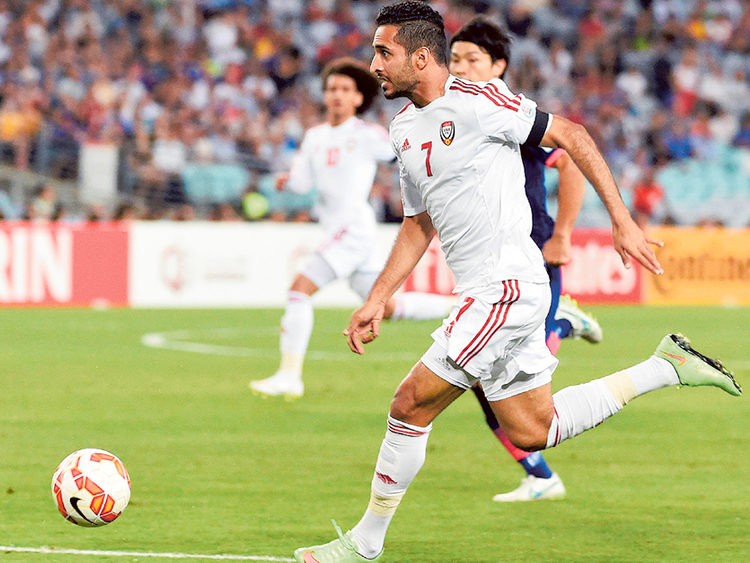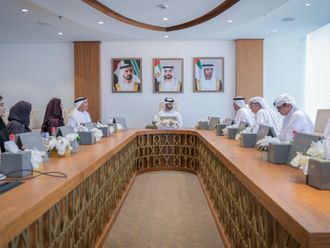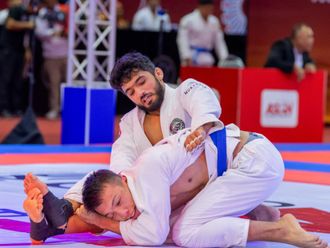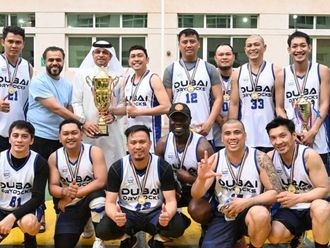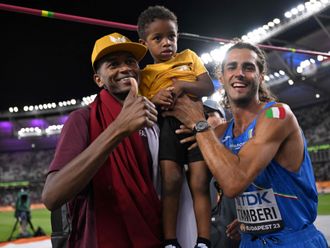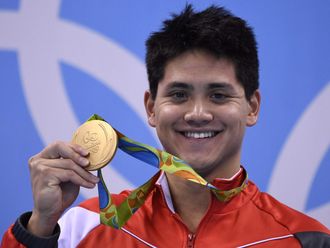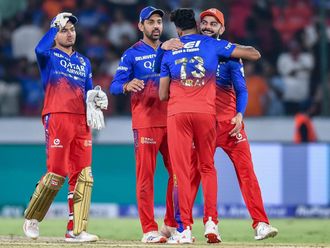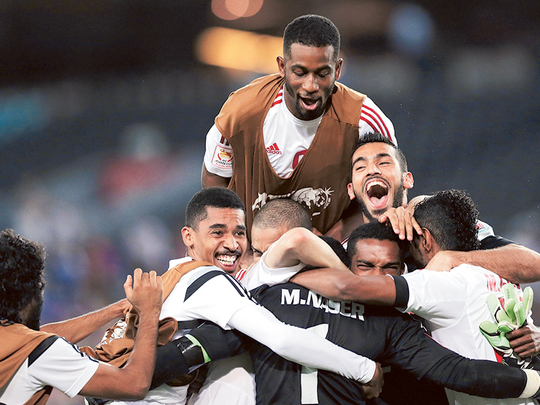
Dubai: It will be remembered as the year that UAE football returned to prominence on the continent.
In January, the national team came third at the AFC Asian Cup in Australia – their best finish on foreign soil – after coming second in their group with wins over Qatar 4-1 and Bahrain 2-1, before a 1-0 defeat to Iran.
Mahdi Ali’s men then stunned defending champions Japan 5-4 on penalties in the quarter-finals but lost to hosts Australia 2-0 in the semi-final before defeating Iraq 3-2 in the third place playoff.
Al Jazira striker Ali Mabkhout shone, not only taking the tournament’s golden boot with five goals, but also scoring the fastest goal in Asian Cup history inside 14 seconds of the Bahrain game.
This had been the UAE’s best finish at the tournament in 19 years since 1996 when they reached the final as hosts but lost 4-2 on penalties to Saudi Arabia in Abu Dhabi.
It was also only the third time in the UAE’s history that they had reached the semi-finals of the competition, having also previously achieved this in Japan in 1992 where they then also lost 2-0 to Saudi Arabia in the last four.
Mabkhout made the tournament’s best 11 alongside Al Ain midfielder Omar Abdul Rahman, proving the UAE’s impact.
High spirits after the Asian Cup were then buoyed in March when it was announced that the UAE had been awarded the right to host the 2019 edition of the tournament, edging Iran in the process.
The Whites carried this mood into their 2018 Fifa World Cup qualifiers, which started in June, with highlights including 10-0 and 8-0 home wins over Malaysia and East Timor respectively.
They now stand second in their group on 13 points from six games, three points behind Saudi Arabia with two games remaining, including a decisive home tie with the Saudis on March 29.
Only topping their group or finishing as one of the four best runners-up will guarantee the UAE progression to the third round, where the top two sides from two groups of six qualify for Russia and the two third place finishers enter cross continental play-offs.
If the UAE are successful in their mission they will qualify for the World Cup for only the second time in their history, having previously debuted in Italy in 1990.
At club level too, 2015 has been a fruitful year. Dubai’s Al Ahli became only the second UAE club to reach the AFC Asian Champions League final and the first UAE side to do so in a decade. Coach Cosmin Olaroiu’s side lost 1-0 on aggregate to China’s Guangzhou Evergrande in November. Only Al Ain have previously reached this pinnacle, winning in 2003 and losing in 2005.
Striker Ahmad Khalil, who scored six in the Asian Champions League and 10 in World Cup qualifiers in 2015 , then saw off competition from Omar Abdul Rahman and Guangzhou’s Chinese midfielder Zheng Zhi to become the first Emirati to win the AFC Asian Player of the Year Award. Khalil was one of three Al Ahli players to make the Asian Champions League 11, along with South Korean defender Kwon Kyung-won and Emirati teammate Majid Hassan.


